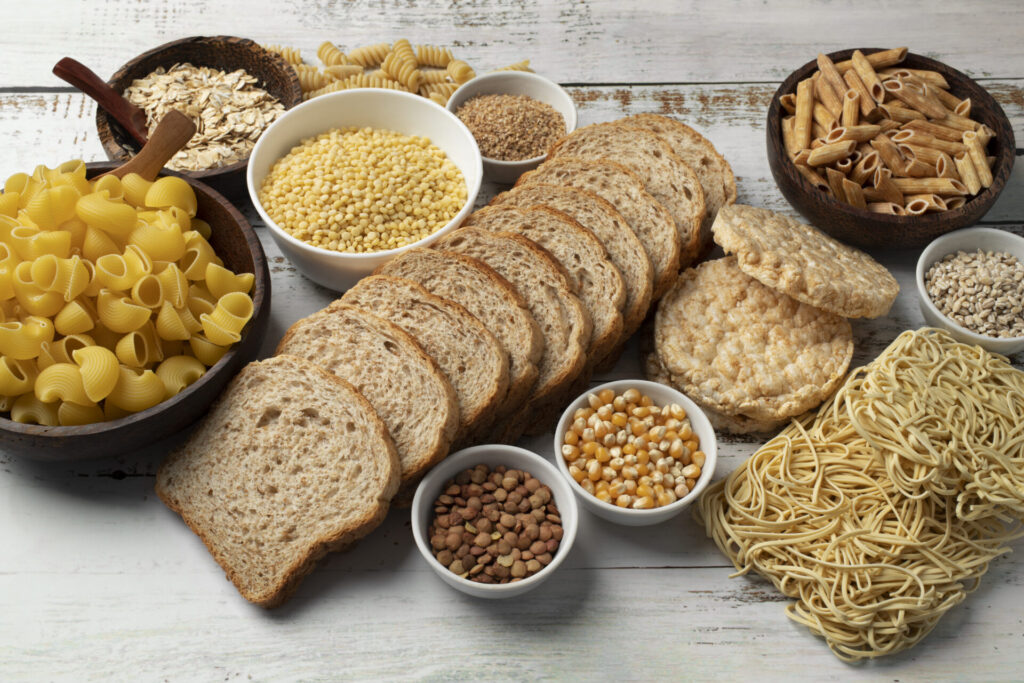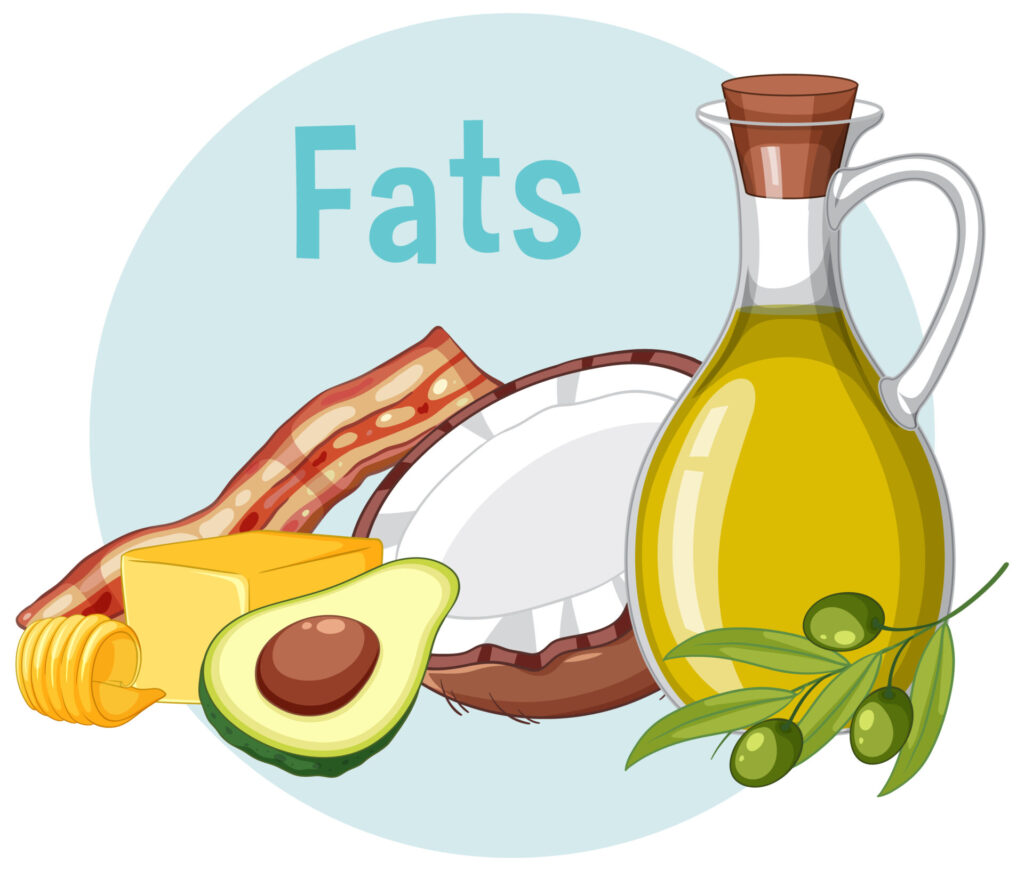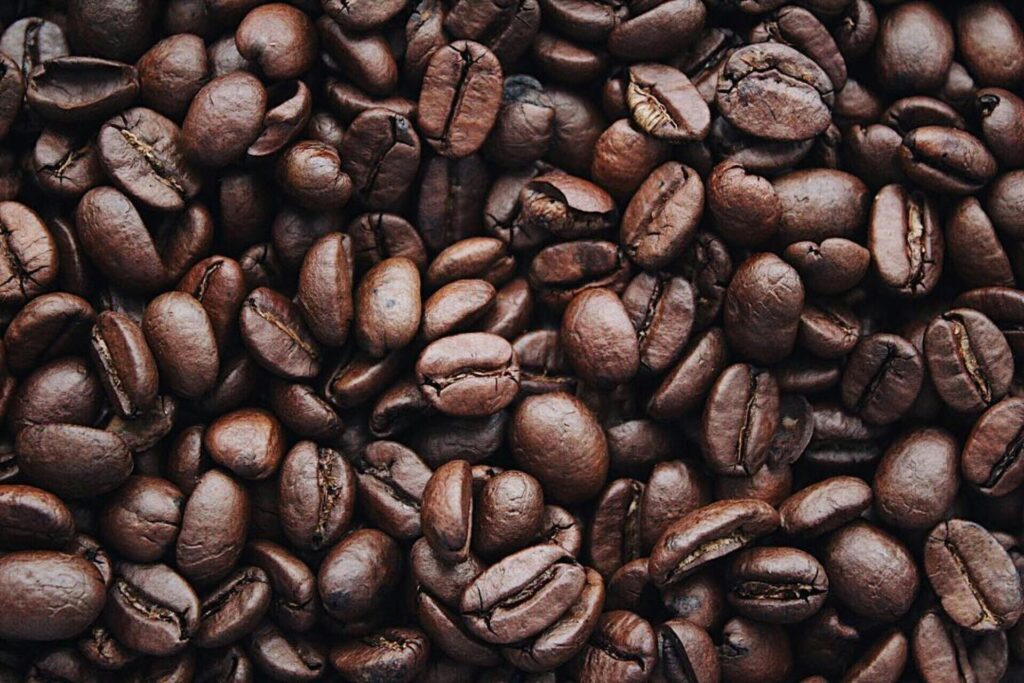How Your Diet Affects Your Energy Levels: The Hidden Link Between Food and Vitality
Contents
- 1 How Your Diet Affects Your Energy Levels: The Hidden Link Between Food and Vitality
- 1.0.0.0.0.1 Read DISCLAIMER
- 1.0.0.0.0.2 The material presented here is for general informational and educational purposes only and is not medical advice. Although we attempt to provide current and accurate information, this blog should not be used as a replacement for professional medical consultation, diagnosis, or treatment. In all cases, consult your physician or an accredited medical practitioner with regards to any medical condition or treatment. Do not ignore professional medical advice or wait for it on the basis of information provided by this blog. In a medical emergency, call emergency services immediately.
- 1.1 Introduction: Food Is More Than Just Fuel
- 1.2 The Science of Energy: How Food Becomes Fuel
- 1.3 Carbohydrates: The Double-Edged Sword of Energy
- 1.4 Proteins: The Silent Energy Stabilizers
- 1.5 Fats: The Long-Term Energy Bank
- 1.6 Micronutrients: The Spark Plugs of Energy
- 1.7 Hydration: The Forgotten Energy Source
- 1.8 Meal Timing: Why When You Eat Matters
- 1.9 Gut Health and Energy: The Hidden Connection
- 1.10 Caffeine and Stimulants: Energy or Illusion?
- 1.11 Emotional Eating and Energy Slumps
- 1.12 The Role of Sleep in Dietary Energy Balance
- 1.13 How Different Diet Patterns Affect Energy
- 1.14 Practical Tips for Eating for Energy
- 1.15 Conclusion: Food as Your Daily Energy Blueprint
- 1.16 FAQs with Answers
Discover how your diet affects your energy levels, boosts stamina, and prevents fatigue with smart food choices for lasting vitality.
Read DISCLAIMER
The material presented here is for general informational and educational purposes only and is not medical advice. Although we attempt to provide current and accurate information, this blog should not be used as a replacement for professional medical consultation, diagnosis, or treatment. In all cases, consult your physician or an accredited medical practitioner with regards to any medical condition or treatment. Do not ignore professional medical advice or wait for it on the basis of information provided by this blog. In a medical emergency, call emergency services immediately.
Introduction: Food Is More Than Just Fuel
Have you ever wondered why some days you feel like you can conquer the world, while other days even climbing a few stairs feels like running a marathon? Often, the answer lies not in how much you sleep or how many hours you work, but in what you put on your plate. Food is more than just calories to fill you up—it’s the raw material that builds, powers, and sustains every cell in your body.
Your diet is like the software running your body’s hardware. Feed it clean, high-quality code, and everything runs smoothly—your brain feels sharp, your muscles fire with strength, and your energy flows steadily throughout the day. But feed it corrupted code—processed junk, sugar-loaded snacks, or meals stripped of nutrients—and the system slows, glitches, and leaves you drained.
Understanding the connection between diet and energy levels isn’t just about knowing which foods are “good” or “bad.” It’s about learning how specific nutrients, meal timing, digestion, hormones, and even hydration orchestrate your body’s energy supply. Once you grasp this connection, you’ll start to see food as your most reliable energy partner, not just something to satisfy hunger.
The Science of Energy: How Food Becomes Fuel
Every movement you make, every thought you think, every heartbeat and breath—all of it requires energy. This energy is measured in calories, but it’s more accurate to think of calories as potential energy waiting to be unlocked.
When you eat, carbohydrates, proteins, and fats are broken down into their simplest forms: glucose, amino acids, and fatty acids. Glucose is the body’s preferred quick fuel, while fats serve as long-term energy reserves, and proteins are more like backup players that step in during extreme demand.
These nutrients enter your cells and head into the mitochondria—the tiny powerhouses that convert them into ATP (adenosine triphosphate). ATP is the real energy currency your body spends on everything from muscle contractions to neurotransmitter release.
But here’s the key: not all foods release energy the same way. Some provide a slow, steady stream of ATP that keeps you fueled for hours, while others dump a fast surge that disappears as quickly as it came, leaving you tired and craving more. That difference explains why your morning oatmeal might keep you energized until lunch, but a doughnut leaves you yawning by mid-morning.

Carbohydrates: The Double-Edged Sword of Energy
Carbohydrates are often misunderstood. On one hand, they’re the quickest and most efficient source of energy. On the other, they can cause dramatic spikes and crashes in your blood sugar if chosen poorly.
Simple carbs—like refined sugar, white bread, or candy—act like firecrackers. They burn fast and bright, giving you a sudden rush of energy followed by a sharp decline. This crash is the infamous “sugar slump,” where fatigue, irritability, and brain fog take over.
Complex carbs—like oats, brown rice, quinoa, beans, and vegetables—are more like a slow-burning log on a fire. They contain fiber, which slows digestion, ensuring glucose enters the bloodstream gradually. This steady release helps you maintain consistent energy and avoid roller-coaster highs and lows.
Think of it this way: eating refined carbs is like lighting your body with matches, while complex carbs are like loading a fireplace with solid wood that keeps the flame alive for hours.
Proteins: The Silent Energy Stabilizers
Protein isn’t usually thought of as an energy food, but it plays a surprisingly important role in keeping you energized. When combined with carbohydrates, protein slows down the absorption of glucose into the bloodstream. This stabilizes blood sugar and prevents that post-meal energy crash.
For example, if you eat a slice of toast with only jam, you might feel a quick burst of energy, but it won’t last long. Pair that same toast with peanut butter or an egg, and suddenly you’ve got lasting power.
Proteins also provide amino acids that build neurotransmitters—like dopamine and serotonin—which directly influence mood, motivation, and mental alertness. That’s why a protein-rich breakfast can help you stay more focused throughout the day compared to a carb-heavy one.

Fats: The Long-Term Energy Bank
For decades, fats were demonized, but they are actually one of the most important nutrients for sustained energy. Unlike carbs, which provide immediate fuel, fats act as long-term energy storage. They break down slowly and provide a consistent supply of calories over time.
Healthy fats—like those found in avocados, nuts, seeds, olive oil, and fatty fish—also stabilize blood sugar, reduce inflammation, and improve brain function. Your brain itself is nearly 60% fat, so it thrives when supplied with omega-3 fatty acids.
Ever notice how a salad with only vegetables leaves you hungry soon after, but the same salad with olive oil, seeds, or salmon keeps you satisfied for hours? That’s the power of dietary fat in extending energy availability.
Micronutrients: The Spark Plugs of Energy
While carbs, fats, and proteins provide the fuel, vitamins and minerals are the spark plugs that ignite it. Without them, the energy process stalls.
Iron is crucial for carrying oxygen to your cells, and low iron is a leading cause of fatigue worldwide. Magnesium is required for ATP production, yet many people fall short in their daily intake. B-vitamins act like the gears in the engine, converting food into usable energy. Even slight deficiencies in these nutrients can leave you feeling sluggish, unfocused, or weak.
It’s not just about calories—it’s about nutrient density. A bowl of spinach may not pack many calories, but it provides magnesium, folate, and iron, all of which directly impact how efficiently your body generates energy.
Hydration: The Forgotten Energy Source
You can eat perfectly, but if you’re dehydrated, your energy will still plummet. Water is essential for transporting nutrients, maintaining blood volume, and keeping cells hydrated enough to function. Even mild dehydration—just a 2% drop—can reduce endurance, slow reaction time, and cause fatigue.
Many people mistake thirst for hunger, reaching for snacks when their body actually needs fluids. If you often feel drained in the afternoon, try drinking a glass of water before assuming you need coffee or sugar.
Meal Timing: Why When You Eat Matters
It’s not just what you eat, but also when you eat that affects your energy levels. Skipping meals can lead to dramatic dips in blood sugar, while eating too much in one sitting can overload digestion and leave you sluggish.
Balanced meal timing—every 3 to 4 hours—keeps blood sugar steady and prevents energy crashes. This doesn’t mean constant snacking, but rather structuring meals with a good mix of carbs, protein, and fat to sustain you until the next one.
Intermittent fasting, on the other hand, has gained popularity for its potential to improve energy efficiency. For some, fasting helps the body rely more on fat for energy, leading to fewer spikes and dips. However, it doesn’t work for everyone—especially those prone to blood sugar fluctuations.
Gut Health and Energy: The Hidden Connection
Your gut microbiome—the trillions of bacteria living in your digestive system—plays an overlooked role in energy. These microbes help break down food, produce certain vitamins, and influence inflammation levels. An imbalanced gut can lead to poor nutrient absorption, leaving you feeling constantly drained even if you eat well.
Foods rich in fiber, probiotics, and prebiotics—like yogurt, kefir, sauerkraut, garlic, and bananas—nourish your gut and improve digestion, indirectly boosting your energy. If your gut is unhappy, chances are your energy will be too.

Caffeine and Stimulants: Energy or Illusion?
Coffee, tea, and energy drinks are go-to solutions for fatigue. Caffeine works by blocking adenosine, the chemical that makes you feel sleepy. This creates a temporary feeling of alertness, but it doesn’t actually provide energy—it just borrows it from later.
That’s why overreliance on caffeine can lead to energy debt, where the crashes become worse and you need more caffeine to feel normal. Used wisely—like a morning coffee or green tea—it can enhance focus and performance. But if you find yourself needing several cups a day, it’s a red flag that your diet isn’t supporting your natural energy well enough.
Emotional Eating and Energy Slumps
Sometimes, fatigue isn’t about nutrients but about how we use food to cope with emotions. Stress, boredom, or sadness often drive cravings for sugary, fatty foods that provide quick comfort. While they may deliver temporary relief, they usually lead to bigger energy crashes later.
Learning to distinguish between physical hunger and emotional hunger is crucial. True hunger builds gradually and can be satisfied with any food, while emotional hunger appears suddenly and demands specific comfort foods. Addressing stress in healthier ways—through movement, journaling, or meditation—can prevent this destructive cycle of energy highs and lows.
The Role of Sleep in Dietary Energy Balance
Diet and sleep are closely linked in a two-way street. Poor diet choices—like late-night heavy meals, excessive caffeine, or sugar—can interfere with quality sleep. In turn, lack of sleep alters hunger hormones like leptin and ghrelin, driving you toward unhealthy food choices the next day.
This cycle becomes self-perpetuating: poor sleep leads to poor diet, which further disrupts sleep and drains energy. Prioritizing both diet and rest ensures your body can efficiently recharge and access energy reserves.
How Different Diet Patterns Affect Energy
Different eating styles influence energy differently. A high-sugar, processed diet leaves most people on an exhausting roller coaster. A balanced whole-food diet, rich in vegetables, lean protein, healthy fats, and complex carbs, tends to provide the most stable energy.
Plant-based diets often deliver high nutrient density and fiber, which can improve energy, but may need careful attention to iron, vitamin B12, and omega-3 intake. Low-carb or ketogenic diets train the body to rely on fat for fuel, which some people find improves endurance and mental clarity, while others struggle with adaptation.
There is no one-size-fits-all. The key is to listen to your body’s response and choose a diet that keeps your energy steady, your digestion comfortable, and your mood stable.
Practical Tips for Eating for Energy
Eating for energy doesn’t mean a rigid diet—it means cultivating habits that nourish you consistently. Start your day with a protein-rich breakfast, hydrate regularly, and avoid relying on quick sugar fixes. Build meals that combine complex carbs, proteins, and healthy fats, and don’t forget colorful vegetables for vitamins and minerals.
Notice how foods affect you personally. That afternoon slump after pasta might mean your body doesn’t handle heavy carb loads well during the day. That burst of focus after a handful of almonds might signal your brain thrives on healthy fats. Small observations lead to big energy gains when acted upon.
Conclusion: Food as Your Daily Energy Blueprint
Your diet is the script that writes your energy story every day. You can’t expect vibrant energy from a body fueled on empty calories, just as you wouldn’t expect a car to run smoothly on dirty fuel. Every meal is an opportunity to nourish, stabilize, and empower your body.
When you begin to see food not as restriction but as support—as a way of feeding your vitality rather than just quieting your hunger—you step into a new relationship with energy. It’s not about perfection, but about awareness and balance.
The truth is, your energy is not just a mystery of mood, stress, or sleep—it’s often sitting right on your plate. And the more you align your food choices with your body’s needs, the more you unlock a steady, powerful flow of life force that fuels not just your day, but your entire well-being.
FAQs with Answers
- How does diet affect energy levels throughout the day?
Diet affects energy by regulating blood sugar, nutrient absorption, and hormone balance. Eating balanced meals prevents energy crashes and supports steady productivity. - Why do sugary foods make me feel tired after a while?
Sugary foods cause a rapid spike in blood glucose followed by a sharp crash, leaving you fatigued, irritable, and craving more sugar for temporary energy. - What are the best foods to eat in the morning for energy?
Whole grains, fruits, nuts, and protein-rich foods like eggs or yogurt are best in the morning as they provide sustained energy instead of quick spikes. - Can dehydration affect my energy levels?
Yes, dehydration slows circulation, reduces oxygen flow, and increases fatigue. Drinking enough water throughout the day is crucial for optimal energy. - How does protein help maintain energy levels?
Protein slows digestion, prevents rapid blood sugar spikes, and provides amino acids for neurotransmitters that regulate alertness and focus. - Why do I feel sleepy after eating a heavy meal?
Large meals divert blood flow to digestion, release sleep-inducing hormones, and can cause a post-meal energy dip, especially if carb-heavy. - Are energy drinks effective for boosting energy?
Energy drinks provide short-term stimulation due to caffeine and sugar but often lead to dependency, energy crashes, and long-term fatigue. - How can I use diet to prevent mid-afternoon energy slumps?
Consuming a balanced lunch with fiber, protein, and complex carbs, along with healthy snacks like nuts or fruit, helps prevent afternoon fatigue. - Can skipping meals lower my energy levels?
Yes, skipping meals drops blood sugar, reduces nutrient supply, and causes mood swings, leaving you feeling sluggish and mentally foggy. - Do certain vitamins boost energy naturally?
Yes, B vitamins, vitamin D, iron, and magnesium play critical roles in energy metabolism and oxygen transport, helping sustain vitality. - Is caffeine a healthy way to boost energy?
Moderate caffeine can increase alertness, but overuse leads to jitteriness, poor sleep, and dependency, ultimately lowering energy reserves. - Can poor gut health affect my energy levels?
Absolutely. An imbalanced gut microbiome impairs nutrient absorption, triggers inflammation, and contributes to chronic fatigue. - Why does processed food drain my energy?
Processed foods are high in sugar, unhealthy fats, and additives that disrupt blood sugar, burden digestion, and provide little real nourishment. - What role do healthy fats play in energy?
Healthy fats from avocados, nuts, and olive oil provide slow-burning fuel and support brain function, keeping energy levels steady. - Can meal timing influence energy levels?
Yes, eating smaller, frequent meals every 3–4 hours helps maintain blood sugar balance and prevents energy dips compared to irregular eating.

I’ve recently started a blog, the information you provide on this site has helped me greatly. Thank you for all of your time & work.
**mind vault**
mind vault is a premium cognitive support formula created for adults 45+. It’s thoughtfully designed to help maintain clear thinking
**sugarmute**
sugarmute is a science-guided nutritional supplement created to help maintain balanced blood sugar while supporting steady energy and mental clarity.
**glpro**
glpro is a natural dietary supplement designed to promote balanced blood sugar levels and curb sugar cravings.
**vitta burn**
vitta burn is a liquid dietary supplement formulated to support healthy weight reduction by increasing metabolic rate, reducing hunger, and promoting fat loss.
**prodentim**
prodentim an advanced probiotic formulation designed to support exceptional oral hygiene while fortifying teeth and gums.
**glucore**
glucore is a nutritional supplement that is given to patients daily to assist in maintaining healthy blood sugar and metabolic rates.
**prostadine**
prostadine is a next-generation prostate support formula designed to help maintain, restore, and enhance optimal male prostate performance.
**sleeplean**
sleeplean is a US-trusted, naturally focused nighttime support formula that helps your body burn fat while you rest.
**synaptigen**
synaptigen is a next-generation brain support supplement that blends natural nootropics, adaptogens
**nitric boost**
nitric boost is a dietary formula crafted to enhance vitality and promote overall well-being.
**wildgut**
wildgutis a precision-crafted nutritional blend designed to nurture your dog’s digestive tract.
**mitolyn**
mitolyn a nature-inspired supplement crafted to elevate metabolic activity and support sustainable weight management.
**zencortex**
zencortex contains only the natural ingredients that are effective in supporting incredible hearing naturally.
**yusleep**
yusleep is a gentle, nano-enhanced nightly blend designed to help you drift off quickly, stay asleep longer, and wake feeling clear.
**breathe**
breathe is a plant-powered tincture crafted to promote lung performance and enhance your breathing quality.
**pinealxt**
pinealxt is a revolutionary supplement that promotes proper pineal gland function and energy levels to support healthy body function.
**energeia**
energeia is the first and only recipe that targets the root cause of stubborn belly fat and Deadly visceral fat.
**prostabliss**
prostabliss is a carefully developed dietary formula aimed at nurturing prostate vitality and improving urinary comfort.
**boostaro**
boostaro is a specially crafted dietary supplement for men who want to elevate their overall health and vitality.
**potentstream**
potentstream is engineered to promote prostate well-being by counteracting the residue that can build up from hard-water minerals within the urinary tract.
**hepatoburn**
hepatoburn is a premium nutritional formula designed to enhance liver function, boost metabolism, and support natural fat breakdown.
**hepatoburn**
hepatoburn is a potent, plant-based formula created to promote optimal liver performance and naturally stimulate fat-burning mechanisms.
**flowforce max**
flowforce max delivers a forward-thinking, plant-focused way to support prostate health—while also helping maintain everyday energy, libido, and overall vitality.
**prodentim**
prodentim is a forward-thinking oral wellness blend crafted to nurture and maintain a balanced mouth microbiome.
**cellufend**
cellufend is a natural supplement developed to support balanced blood sugar levels through a blend of botanical extracts and essential nutrients.
**neuro genica**
neuro genica is a dietary supplement formulated to support nerve health and ease discomfort associated with neuropathy.
**revitag**
revitag is a daily skin-support formula created to promote a healthy complexion and visibly diminish the appearance of skin tags.
Right, Aviator predictor? Sounds a bit too good to be true, doesn’t it? Gave it a whirl using 1winaviatorpredictor. Make sure you know what you are doing before you put any real money down! Risk and reward…
Catching the game live on fb88tivi is brilliant. The stream’s usually pretty decent and it’s handy being able to stick a bet on at the same time. Worth bookmarking! Watch live here: fb88tivi
I’m all about bong88keonhacai. Good odds and smooth experience, gotta love it
Hi there this is somewhat of off topic but I was wanting to know if blogs use WYSIWYG editors or if you have to manually code with HTML. I’m starting a blog soon but have no coding know-how so I wanted to get guidance from someone with experience. Any help would be enormously appreciated!